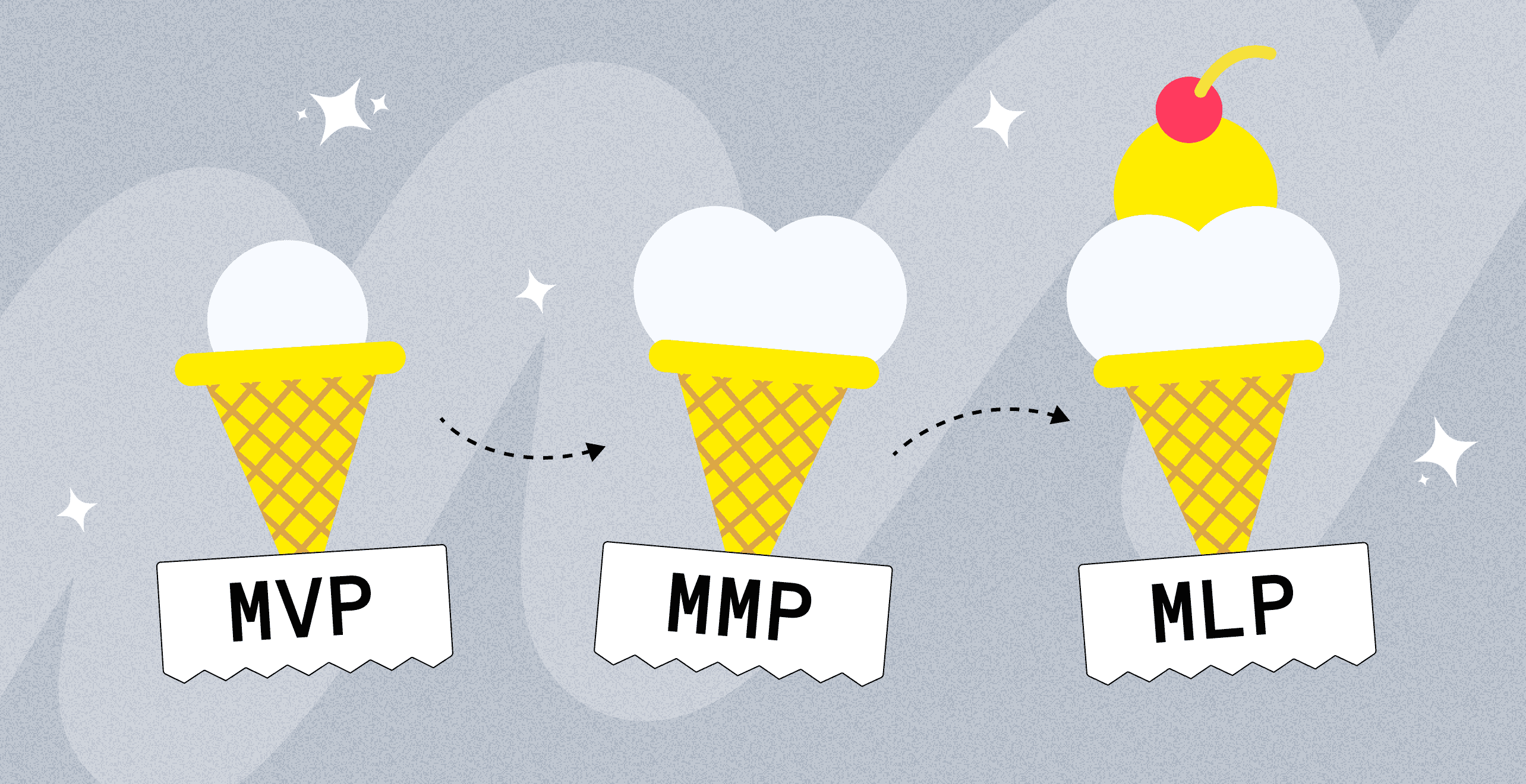• 16 Feb 2024
Product Design
PMV
PMA
Perfection
Adam Grant
Lovable Minimum Product
Notes of: Hidden Potential by Adam Grant

One of the biggest lessons from my first projects was about the minimum viable product and its usefulness. If you don't know about this term and are interested, you can visit https://theleanstartup.com/. There, Eric Ries, although he is not the founder, popularized it. He explains in detail the history, origins and applications of the term. Also, how it is part of the ecosystem called Lean Startup. But in general, the MVP is a term. It is used to launch services or products to the market in the shortest possible time and with few resources. The goal is to discover if the product has a fit in the market. The goal is to find opportunities to improve or change the product, after important discoveries. In the world of entrepreneurship, MVPs are the bedrock. They are the initial versions, raw ideas. Over time, if treated well, they become monsters.
My experience at Meniu: why failing is better than not trying.
In my case, Meniu was the first product with which I practiced this methodology. But it was not the first time, but rather a late discovery. After more than a year with an unchanging prototype, we realized that we had to change in order to respond. That simple idea, which sometimes eludes even the greatest, made us start to pivot more quickly. But, perhaps, not as quickly as we should have. Being our first project for everyone, we didn't know. The pilot of the project was with coupons and stickers. Later, it became a B2B solution and a food benefits service for employees. If you want to see more about the project, go to https://camilopaez.com/projects . There is the list of projects. At the end, you will find Meniu.
Learning to learn: How to face the fear of failure
This is not a post about the MVP. It does not seek to review flaws and virtues in Meniu or other projects. It is more a topic that I found in Adam Grant's book, "Hidden Potential." From the big picture, Grant looks for the best in us in his book. He talks about strategies (scaffolding), which I translate to scaffolding. He wants to express our hidden talent. It usually comes from many presentations and skills. One is to adapt to the discomfort of new environments. It is to get out of the comfort zone. It is to learn skills that we have not worked on enough. We do not do it because it is uncomfortable to learn them. In my case, at Meniu, one of those skills was selling. I hated selling and being commercial. But, it was time, and that encouraged me to leave my shyness behind. Now, I can speak more confidently with strangers. Another of the strategies that Grant mentions is to transform feedback. Learning to understand that it can come from many sides and, in some way, actively seeking it is vital. The important thing is to learn from it.
Personally, I was very afraid of making mistakes. After a failure, I was overcome with enormous sorrow and sadness, just for having failed. Grant tells us to seek feedback. Not to relive the past, but to improve the future. Using feedback is more a driver of improvement than an attack on the past. Now you might be wondering why I am talking about this. Why don't we go to the point of the minimum lovable product? Well, there is a reason for everything. When I talk about learning to learn, I mean accepting feedback. It is a concept similar to MVP. With MVP, we want to validate ideas. We want to test them and receive feedback from users of our products.
If we wait until we are ready to start, we will never start. We will be ready when we have had enough practice in what we are looking for. - Adam Grant
This makes me think about how stubborn we can be. We put a lot of obstacles in our way. We say we don't want to try something until we're sure it will work. But the only way to know is to try. And from experience, I know that at the end of the day we don't know. Part of us wants to experiment and try. But another part of us is comfortable with what we do. This stops us from making progress. We're afraid of failure and what others will say.
The importance of feedback
To address these concerns, we can take Grant's advice. There are hundreds of studies showing that we are not defined by our lowest moments. They use our highest. When someone sees us failing, they don't think we are failures. They see the courage of trying. In most cases, they give us advice or encouragement to keep trying. Or we can take a more nihilistic approach, I suppose. We should only consider what we feel and want. Why worry about what others will say? We can't control others and everyone can have their own opinion. Maybe we should focus on what matters: our development. If instead of comparing ourselves to the next guy, we compare ourselves to the guy from yesterday. If instead of thinking about why we are so bad, we think about how to be better at this and that.
The talk is that we must be proactive in seeking out new knowledge. Know where to get it from and take only what is useful to us. There is no point in learning for learning's sake. We must be selective about what we integrate into our routine. This includes the people we listen to and their thoughts. We must preserve some and discard others.
But if we want to improve and grow, we can't do it based on our ego. We shouldn't try to be the best just so others think so. We must do it with humility. We must acknowledge our faults. When we do it from ego, we tend to be difficult to approach. If someone tells us we're bad at something, we respond rudely or ignore the idea.
Overcoming the search for perfection
To improve, we need to let go of perfection. Studies have found spikes in the pursuit of perfection and obsession with being the best in children, teenagers and adults in the US and UK since the 1990s. This was even before social media and the massification of lifestyle ideals. Even before then, people were obsessed with the idea of being perfect. The big problem is that there is no such thing as perfect. There will always be conflicting opinions. Some people will not like something. There will never be a consensus, because that is life. That makes it richer in ideas, creativity and people.
There are only one or two places where being perfect matters: school or any learning area with a curriculum. Here it is easy. To be perfect, it is a game of memory and interpretation. Obsession with a topic can lead to being the best at it. But, in academia itself, we are full of complex situations. For example, in research, finding a single, perfect answer is impossible. Outside academia it is even more difficult. Social and environmental factors come into play. There are appropriate answers to the situations we are in. But there will never be a single, perfect answer.
The problems of perfectionists are the following:
- They obsess over unimportant details. They don't know what's relevant. They may waste time trying to fix something unimportant.
- They avoid the unknown and outside of their control. They only refine pre-existing skills. They may become obsolete or stunt the development of skills outside their comfort zone.
- They treat themselves poorly. They hurt themselves emotionally, and even some physically, by not achieving what they want. They forget that reviewing their own mistakes teaches. They see it as self-inflicted degradation.
When we care about a project, we are perfectionists. That's a problem. We can't move from one stage to the next for fear of things not being perfect. This prevents us from iterating and improving, as we become obsessed with a first version.
Wabi-Sabi and the acceptance of imperfection: High standards without perfectionism.
The solution to the notion of perfection is to accept the imperfect. Here we can review Wabi-Sabi, a Japanese tradition. This mentality sees imperfection as something natural and welcome in our lives. This philosophy invites us to accept inevitable flaws. Thus, we can be comfortable with them. Wabi-Sabi takes us away from the idea of perfection. It invites us to accept ourselves and the world as they are.
We need to focus on setting high standards, but not perfectionist ones. It's not just about doing the best we can. That could lead to poor performance by striving for perfection. When I talk about high standards, I mean setting goals that are attainable, tangible, and clear about what we want to achieve. These goals need to be clear. They should help us focus on the most important actions. They should also help us identify the activities that require more effort.
In entrepreneurship, Wabi-Sabi is embracing the challenges and imperfections that come with starting and running a business. Entrepreneurs often face failures, setbacks, and unexpected changes. Adopting the Wabi-Sabi mindset can help entrepreneurs. It will allow them to view these situations as learning opportunities, not obstacles. This perspective fosters resilience. It lets entrepreneurs adapt and adjust their strategies. It removes the paralyzing weight of perfectionism. By embracing imperfection, space is opened for innovation and creativity. These are essential for success in any venture.
The Power of Pivoting
Returning to the world of entrepreneurship, let's talk about pivoting. Pivoting is changing, moving from one idea to another with a basis and arguments. Done is better than perfect. You have to iterate quickly and build the minimum viable product that I talked about a few minutes ago. To pivot, we need several tools. They are scaffolding that makes it easier to do so.
You must see mistakes as part of a process. That process requires getting out of our comfort zone. Sometimes, we must try things we don't like. Understand that failure is inevitable. We live in an imperfect world. We must be comfortable with our failures. Let's avoid perfectionism. It stops us from continuous improvement. Instead, let's focus our energy on testing and experimenting. We must learn to learn and be more like sponges. Let's be proactive in what we can learn. Let's filter the useful from the useless. Let's learn for our own sake, not for what others will say. We must see feedback as a tool for improvement, not as a criticism of our way of being.
All of the above points to the same principle. Genuine growth comes from exploring the unknown and adapting with openness. It's the value of the adorable minimum product. It's learning from feedback. It's embracing imperfection and stepping out of your comfort zone. In Hidden Potential, Adam Grant explores this idea. He investigates how to discover and cultivate our strengths. The road to success is paved with mistakes, not without them. In a world where perfection is unattainable, experimentation is essential. Grant reminds us that improvement depends on learning and valuing the process more than the result.
Failure as a tool for life and growth
If something has resonated with you, Grant's book can give you a more detailed map to build and strengthen your potential. It's an invitation to see learning as a continuous process. Also, to redefine failure not as an obstacle, but as a sign of progress.
